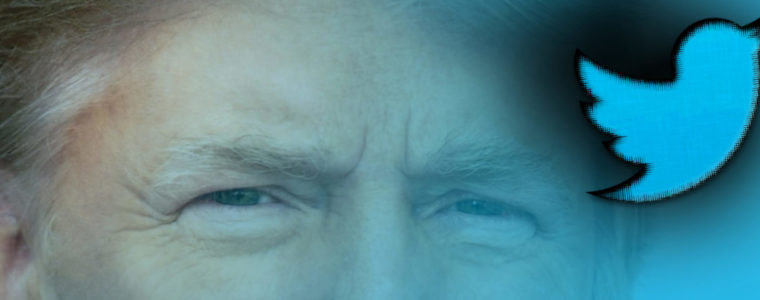Government by Twitter?
It is clear that Donald Trump will keep tweeting after he is sworn into office as President.
His Twitter site now claims to have over 20 million followers. What politician would give up such a goldmine of support? Especially when media reporters follow it closely?
If Trump keeps tweeting, though, he could revert—at 3 o’clock in the morning—to the kind of rude-and-crude approach that won him so much fierce opposition during his presidential campaign. This should concern pro-lifers, whose cause he now supports. They already have more than enough fierce opponents of their own.
This is a good time to remind the president-elect that two of our greatest presidents could have been failures had they not exercised restraint in tough situations. Let’s pretend for a moment that George Washington and Abraham Lincoln had an earlier version of Twitter, a horseback courier service that delivered their daily comments to major newspapers around the country. We might call that service the Presidential Pony Express. Let’s imagine how Abe and George could have made great trouble for themselves, and then consider the restraint they showed instead.
Here’s how President Washington could have vented to readers about difficult situations he faced:
@PrezGeorgeWashington, September, 1792: Cabinet members Jefferson & Hamilton fighting again. Time to grow up, guys! Cut it out!
@PrezGeorgeWashington, Jan. 1794: So Jefferson’s resigned & gone back to Monticello. Wasn’t great Sec State anyway. Good riddance!
@PrezGeorgeWashington, Nov. 1795: Big fuss over Jay’s Treaty requiring Brits to leave military posts in Northwest—what we’ve wanted for years. Why the crybabies?
What Actually Happened: Although he tried to persuade Thomas Jefferson and Alexander Hamilton to stop their infighting, Washington did not complain publicly about their disputes. He valued both men and managed to keep both in his cabinet at the same time for several years. Viewing Jefferson’s eventual departure with regret, Washington praised his service and assured him of “my most earnest prayers for your happiness.” Although Hamilton also retired from the cabinet before the end of Washington’s two-term presidency, he continued to assist the president in various ways.
The treaty that John Jay negotiated with England had serious deficiencies. Yet many historians say Washington was right to support it rather than risk a war with England that the U.S. likely would have lost. Washington did not publicly assail the treaty critics.
Abraham Lincoln had many troubles, too. Here are some complaints he could have made via a Presidential Pony Express:
@PrezAbrahamLincoln, November 1862: After Antietam victory, McClellan failed to pursue and destroy Lee’s army. What a blunder! Time to go, McClellan!
@PrezAbrahamLincoln, May 1863: Treasury Sec Chase threatens resignation over minor appointment issue. How petty!
@PrezAbrahamLincoln, April 1865: Gen. Lee finally surrenders his army to Gen. Grant. Vengeance is ours!
What Actually Happened: When President Lincoln replaced General McClellan, he did so without publicly attacking him—although McClellan had provoked him mightily.
Treasury Secretary Salmon Chase was outstanding in his job, but touchy. He once threatened to resign because Lincoln had removed a Chase appointee without consulting the Secretary. Lincoln stopped by Chase’s home, explained his decision, and persuaded Chase to stay on.
When General Lee surrendered in 1865, Lincoln did not speak of vengeance. Addressing a large crowd at the White House just after the surrender, he rejoiced with them; but he also asked a band to play “Dixie.” He understood the need for reconciliation after the long and bitter Civil War.
Our greatest presidents knew that a leader cannot make things happen just by giving speeches and writing orders—and certainly not by reckless attacks. They knew that courtesy, respect, and conciliation were essential parts of their work. Let’s hope our next president learns from their example.










